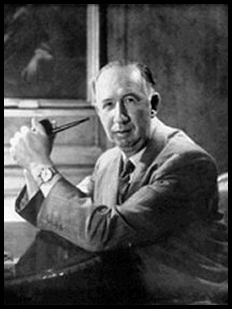(Today marks the 59th anniversary of the announcement of the IBM System/360 series)
Buy the book: Father, Son, & Co
When Tom Watson Jr was 10 years old, his father came home and proudly announced that he had changed the name of his company. The business that had been known as the Computing-Tabulating-Recording Company would now be known by the grand name International Business Machines.
“That little outfit?” thought young Tom to himself, picturing the company’s rather random-seeming collection of products, which included time clocks, coffee grinders, and scales, and the “cigar-chomping guys” who sold them. This was in 1924.
This is the best business autobiography I’ve read. It’s about Watson Jr, his difficult relationship with his father, the company they built, and the emergence of the computing industry. It is an emotional, reflective, and self-critical book, without the kind of “here’s how brilliant I was” tone that afflicts too many executive autobiographies. With today being IBM’s 100th anniversary (counting from the incorporation of CTR), I thought it would be a good time to finally get this review finished and posted.
Watson’s relationship with his father was never an easy one. From an early age, he sensed a parental expectation that he would follow his father into IBM, despite both his parents assuring him that this was not the case and he could do whatever he wanted. This feeling that his life course was defined in advance, combined with fear that he would never be able to measure up to his increasingly-famous father, was likely a factor in the episodes of severe depression which afflicted him from 13 to 19. In college Watson was an indifferent student and something of a playboy. His most significant accomplishment during this period was learning to fly airplanes—-”I’d finally discovered something I was good at”a skill that would have great influence on his future. His first job at IBM, as a trainee salesman, did little to boost his self-confidence or his sense of independence: he was aware that local IBM managers were handing him easy accounts, wanting to ensure success for the chief executive’s son. It was only when Watson joined the Army Air Force during WWIIhe flew B-24s and was based in Russia, assisting General Follett Bradley in the organization of supply shipments to the Soviet Unionthat he proved to himself that he could succeed without special treatment. As the war wound down, he set his sights on becoming an airline pilotGeneral Bradley expressed surprise, saying “Really? I always thought you’d go back and run the IBM company.” This expression of confidence, from a man he greatly respected, helped influence Watson to give IBM another try.
The products that Watson had been selling, as a junior salesman, were punched card systems. Although these were not computers in the modern sense of the word, they could be used to implement some pretty comprehensive information systems. Punched card systems were an important enabler of the increasing dominance of larger organizations in both business and government: the Social Security Act of 1935 was hugely beneficial to IBM both because of the systems they sold to the government directly and those sold to businesses needing to keep up with the required record-keeping.
